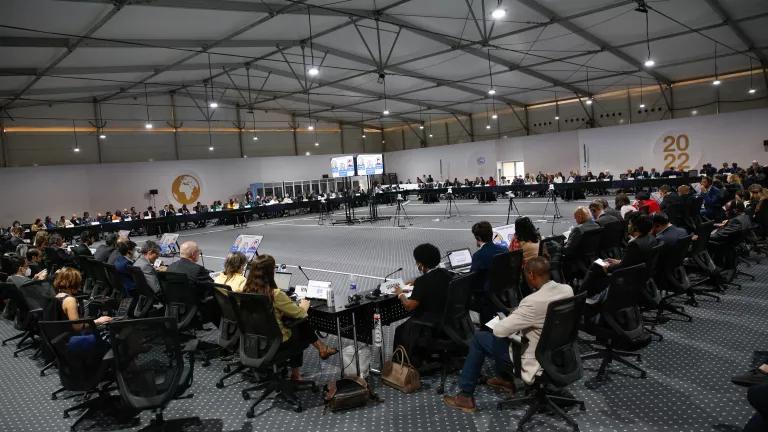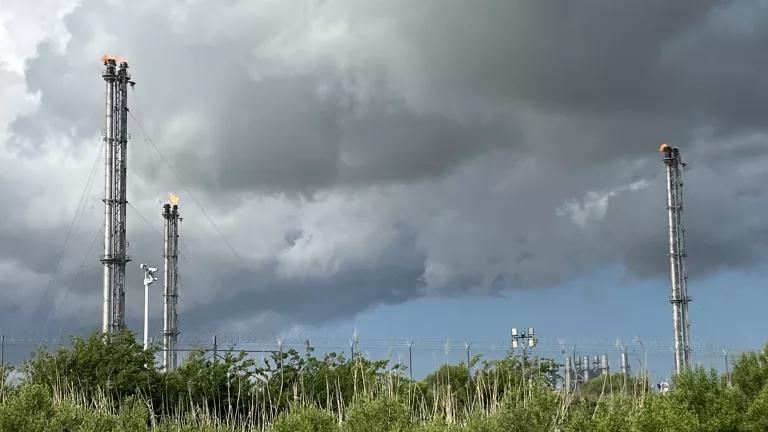Latin America Green News: Claims against Hidroaysén reach Chile's environmental regulators, Costa Rica's coral reefs lack safeguards, air quality proposals drafted in Mexico
Latin America Green News is a selection of weekly news highlights about environmental and energy issues in Latin America.
April 13-19, 2013
Chile
Chile’s Environmental Evaluation Service (SEA) has sent the Superintendence of the Environment—the country’s environmental regulatory body—several claims regarding Hidroaysén’s alleged breach of its environmental permit. The claims are backed by a SEA-commissioned report, issued in March of this year, that outlines several irregularities pertaining to the drafting of the project’s Relocation Plan, a document that was to be negotiated and agreed to between the developers of the mega-damn project and the families that would be directly affected by the flooding of their properties. (Diario el Divisadero 4/17/2013)
Barrick Gold—the Toronto-based mining company whose Pascua Lama gold and silver mining project was suspended last week amid charges of environmental irregularities—has asked the Copiapó Court of Appeals to reconsider its decision. In the official request, the company claims that the Chilean Superintendence of the Environment, and not the appeals court, has the sole authority to suspend projects for regulatory incompliance—an action that the regulatory body has considered on at least two occasions and deemed not necessary. (Diario Financiero 4/18/2013)
Enel Green Power—a subsidiary of the Italian energy company Enel—has been awarded exclusive rights to develop and operate a 130 MW wind farm, called Sierra Gorda Este, in Chile’s Antofagasta region. The project will add to the 6.4 GW of already installed power generation capacity that the company operates in the country and contribute to the broader target of operationalizing 11.3 GW of renewable capacity by 2020. (AméricaEconomía 4/16/2013)
Chile’s salmon industry has once again been hit by the Infectious Salmon Anaemia virus (ISA), which was detected in a fish farm cage containing 0.12 percent Atlantic salmon stock of major producer Multiexport Foods. Although the virus poses no known risks to human, many major supermarkets have removed Chilean salmon from their shelves. ISA led to a 65 percent decline in salmon stock in 2007, devastating an industry that once supplied 30% of the world’s salmon and trout. (The Santiago Times 4/12/2013)
Costa Rica
Costa Rica lacks adequate legislation to protect its 970 square kilometers of coral reefs, claims a coalition of several public and civil society groups that has mounted an effort to fill the regulatory gap. The groups, which are preparing a decree to regulate fishing, tourism, and other activities, indicate that as much as 97% of the country’s coral reefs are already showing signs of severe damage. The reefs generate approximately $582 million in ecosystems services annually, principally by serving as the birthplace for several high-value fish species, providing natural storm surge protection, and creating tourism revenue. (La Nación 4/16/2013)
Seven Canadian organizations are pressing Infinito Gold to withdraw its April 4 threat to sue Costa Rica for US$1 billion for suspending the construction of the Crucitas gold mine. In a letter sent to the company’s CEO, the organizations call on Infinito Gold to “drop all legal actions against Costa Rica and its citizens and to leave the country.” The Calgary-based company has claimed that the suspension—which was announced following a 2010 nation-wide ban on open-pit mining—breaches a trade agreement between the two countries. (Inside Costa Rica 4/17/2013)
The Constitutional Chamber of Costa Rica’s Supreme Court has agreed to review a zoning plan put forth by the Puerto Jiménez municipality that paves the way for the construction of a large 107-slip marina at the Crocodile Bay Resort in the Golfo Dulce. The marina is part of a larger development project that environmental groups have challenged for years on the grounds that it threatens local wetland and marine ecosystems. (The Tico Time 4/17/2013)
Mexico
Mexico’s Energy Regulatory Commission, in collaboration with the Ministry of Energy, is developing a new program to encourage the development of solar energy projects in the country. The program will elaborate guidelines for the licensing of solar projects and establish “Electric Power Auctions” for small producers (those generating less than 30 MW). At the close of 2012, Mexico—estimated to have the third largest solar potential in the world–registered 1,640 small-scale generation contracts, representing 61,486 KW of capacity. (El Economista 4/17/2013)
Experts in Mexico are drafting 12 public policy proposals to combat the country’s chronically poor air quality. Proposed measures include updating Mexico’s air quality and clean fuel standards, creating incentives to renew the domestic vehicle fleet, and engaging in greater public discourse. Air pollution is estimated to have cost Mexico over 520 billion pesos (approximately US$42 billion) in 2009, approximately 4.4% of the country’s total GDP. (El Occidental 4/18/2013)
Mexico’s plans to expand domestic shale gas exploration may be stymied by water shortages, noted Miriam Grunstein, a professor at the Centre for Research and Teaching in Economics in a recent interview with IPS. Water is a key ingredient in hydraulic fracturing, or fracking—the primary method to extract natural gas from shale rock formations. The country experienced a prolonged drought in 2012, which threatened the agriculture and livestock sectors and deteriorated living conditions in dozens of rural villages. (IPS 4/18/2013)
For more news on the issues we care about visit our Latin America News archive or read our other International blogs.
This week’s news was compiled by Maria Belenky.




